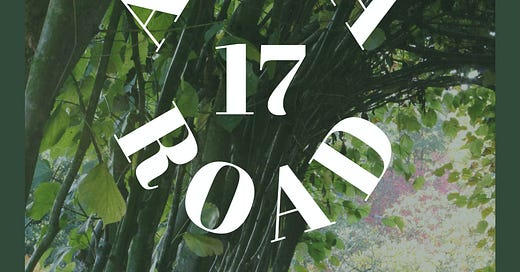IV
They had responded to the news in the way they thought you were supposed to react to such things: a blend of surprise, seriousness, joy. Having seen some of their friends go through a similar process and exposing such emotions, they assumed there was a template to which they needed to conform and so strived to do so; it didn’t seem to matter how accurate an assumption that might be — valid or otherwise — nor how closely they adhered to it. In any event, it was an excuse for the party at the start of which Alice set-out saying she had forsworn drink for the duration, yet later succumbed to finish the evening almost as inebriated as Augustus.
For anyone who knew them — “AA” as they had become jointly known (accompanied by unoriginal jokes relating to either driving or drinking) — the party ran pretty much to form: three hours in the pub followed by another couple back at their flat for selected invitees only. A triumph in terms of the expectations one might have for an AA ‘bash’, it was an event that could easily have been concocted to celebrate a birthday or a new job — apart from the plethora of mainly pink ‘congratulations’ cards (not that they gave the colour any real thought at the time). In this instance, several months later the pink was to prove inappropriate: Owen was very definitely not a girl. Two years later they went through the same palaver, more or less, though with most of its elements curtailed: they spent less time in the pub; Alice drank less; not quite so many people came back to the flat. And not only was there less pink (even if was to prove apposite this time) there were fewer cards altogether. Whilst not entirely subdued, Augustus chose to blame the lack of scale on the realities of being a parent. “Alice is pretty tired these days, and Owen’s a handful.”
In truth they were both drained, partly by the burden of having to look after an infant, and somewhat obtusely partly from the removal of many of the social stimulants with which — as a childless couple — they had become accustomed. If, in retrospect, that first mid-sixties party came to symbolise anything it was less the celebration of an impending child and more the death knell for the kind of life they had been living. No-one had told them that would happen; there was nothing in their fictional template to forecast such a decline; the pink congratulations-cards failed to mention it. They had seen the impact in others of course — the sudden lurch into domesticity — but assumed that somehow it would not apply to them. After all they were not “those kind of people”.
What kind of people were Augustus and Alice? They already had a plan which both pre-dated and precluded children: a future mapped out not in the concrete but in the abstract; one more concerned with ‘how’ they would live their lives rather than the specific episodes from which it would be comprised. Thus when they went to Italy for a holiday the year after their marriage, the scenery and the fabric of the buildings mattered less than their interaction with them. Whether they were in Rome or Pisa or Siena was — on one level — an irrelevance; what mattered was how they engaged with those cities, the restaurants they patronised, the cafés outside which they sat in order to absorb them. They wanted to be subsumed and integrated, not float over the top. Tourists took photographs and moved on; what Augustus and Alice wanted was to take Italy home in their souls. Whether romantic or naïve — or indeed able to be described in any other language aside from Italian — they were disinclined to give this shared ambition a label; it was simply who they were, a predilection or instinct which formed part of the magnetism which bound them together. If, having spent far more than planned, they returned home poorer than expected and therefore needed to tighten the purse strings for a few weeks afterwards, they persuaded themselves it was a small inconvenience for being richer in spirit. And what was money for anyway if not that?




